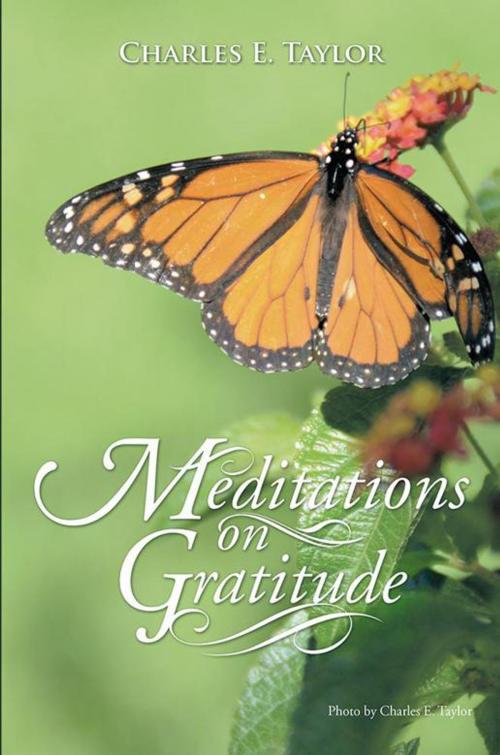| Author: | Charles E. Taylor | ISBN: | 9781499077629 |
| Publisher: | Xlibris US | Publication: | September 30, 2014 |
| Imprint: | Xlibris US | Language: | English |
| Author: | Charles E. Taylor |
| ISBN: | 9781499077629 |
| Publisher: | Xlibris US |
| Publication: | September 30, 2014 |
| Imprint: | Xlibris US |
| Language: | English |
Meditations on Gratitude is an affirmation of life, the eternal yes, and the voice of one returning to foundations of responsibility, love, and understanding often learned in adolescent experience. The poems depict growth from solipsism, preoccupation with pain and fear, to acceptance, and surrender. They allow the personae growth in recognition of death. Some understandings came out of my association with Armida Alexander, my Unitarian Universalist minister, and fulfillment of my roles as husband and father. The poems depict a new assumption of responsibility sometimes through simple awareness of the words please, and thank you. Thus, the poetic voice becomes one of gratitude, and an affirmation of life, life as a great gift, for as Jon Kabat-Zinn has said stated in his book Full Catastrophe Living, as long as one is breathing, one is doing something right. In meditation, both Theravada and Mahayana Buddhist traditions emphasize breath, and often beginning meditation starts with simple breath counting. From this comes insight, and this is the point of Meditations on Gratitude, the insight of life as in the Buddha turning after attaining Enlightenment to the earth, and breath became essence. Christians would call this the breath of life.
Meditations on Gratitude is an affirmation of life, the eternal yes, and the voice of one returning to foundations of responsibility, love, and understanding often learned in adolescent experience. The poems depict growth from solipsism, preoccupation with pain and fear, to acceptance, and surrender. They allow the personae growth in recognition of death. Some understandings came out of my association with Armida Alexander, my Unitarian Universalist minister, and fulfillment of my roles as husband and father. The poems depict a new assumption of responsibility sometimes through simple awareness of the words please, and thank you. Thus, the poetic voice becomes one of gratitude, and an affirmation of life, life as a great gift, for as Jon Kabat-Zinn has said stated in his book Full Catastrophe Living, as long as one is breathing, one is doing something right. In meditation, both Theravada and Mahayana Buddhist traditions emphasize breath, and often beginning meditation starts with simple breath counting. From this comes insight, and this is the point of Meditations on Gratitude, the insight of life as in the Buddha turning after attaining Enlightenment to the earth, and breath became essence. Christians would call this the breath of life.















